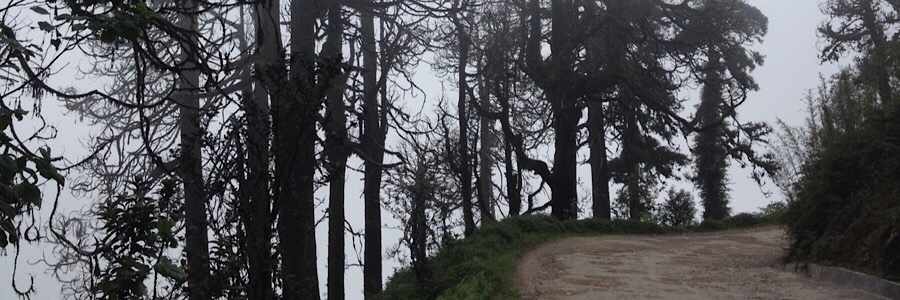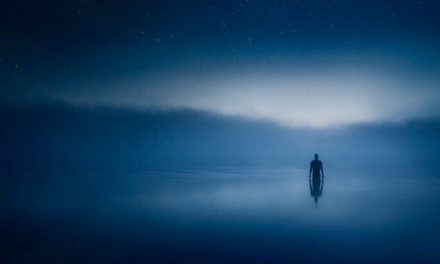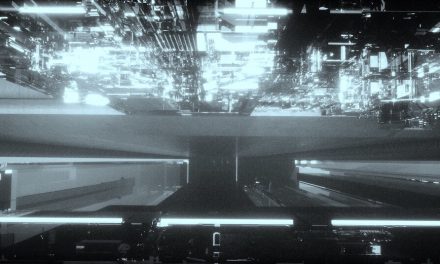There’s a difference between not being a part of the world and outright rejecting it.
Rowan always felt they had been born in the wrong era; even in the wildest places the stink of urban blight could be felt, humanity’s willing submission to the rule of technology and modernization. Rowan senses a much greater connection with the hunters and gatherers of bygone ages than with almost anyone alive in the era of cell phones, television, and automobiles.
Even working as a ranger after college they felt the beauty of nature had been reduced, for most, to a meaningless post of bow #blessed the weekend was. Armed with a cellular phone and a handgun, Rowan tried to keep the peace and point out opportunities to help the forest reclaim that which had been ripped from it. Hard-soled shoes and an ultra-lightweight pack, no matter how well-designed, contributed to their daily soured mood.
People largely left Rowan alone, which suited them just fine; routinely a twelve-hour shift would pass without anyone calling or needing assistance. Not infrequently they wouldn’t even check in at the end of the work day, setting impromptu camp in a soft tree’s boughs and enjoying a few hours of real connection to the natural world before redonning their scratchy and artificial uniform for the labors ahead. Luckily the bosses didn’t seem to mind, or notice the absence.
It has been said that “anger gets things done.” Only when someone is well and truly mad enough at something, be it a person, a society, or the very laws of nature, will they start to take meaningful action. Rowan first dipped into that wellspring of roiling hatred when they saw a deer, mortally wounded, left for dead on the forest floor.
It hasn’t been a straight shot; the bullet passed through something before it hit the juvenile—possibly its mother. Poachers were a constant menace in the nature preserve and one Rowan fought stridently against. Rather than owning up to their mistake, or even having the decency to put the bleeding fawn out of its misery, they took the mother and ran, ran like the cowards they were.
Something within Rowan snapped, like a crack of thunder against the treetops. They could feel the deer’s pain, emotional as well as physical, as if the feelings were radiating out of it. They felt their own anger as well, as if it were a hot sweater worn on a Summer day—scratchy and cloying even under the gentle forest breeze. Rowan’s rage continued to grow until it filled their vision, the whole of the world bathed in red. “Hunters” with modern technology and tools such that the animal doesn’t stand a chance. Guided safaris for tourists to collect their own trophies from the comfort of a minivan outfitted for the purpose.
There is a harmony to nature—the balance of predator and prey—which keeps itself in check. As the latter waxes so too does the former. As hunting gets lean, only the strongest and most cunning survive to the following season. The simple and unerring law of nature, laws of survival and harmony. Humans of old understood this, and lived in peace with the animals, venerated them as fellow beings of creation. In more modern eras humanity turned from partner to subjugator, attempting nature to bed to its will.
Rowan let out a primal scream with the unadulterated fervency of a newborn child, pouring their emotions—their hate and rage—into a call toward the heavens as they felt the deer die in their hands. The birds did not scatter at the sound, the voles and other ground creatures did not hide. They bent closer, as if to bear witness to the awakening of true understanding, the likes of which humanity had been so long without.
Sinking to their knees on the damp forest floor, Rowan panted, drained of everything. Their fingers no longer tingled, eyes no longer saw the world in shades of crimson, and the only sound was their own pounding heartbeat in their ears. Each breath was a labor all its own, taking every ounce of will they had to take in more oxygen.
“I’ve been watching you, Rowan Ashe,” a smooth voice came from outside their dimmed field of view. “And I must say, I like your style. You might even have what it takes.”
“What it … takes?” Rowan asked groggily, chest still heaving with effort as their eyes lazily drifted toward the sound.
“To make a difference. To show the world that the old ways aren’t forgotten. To make them pay.”
Previously I had used the idea of someone with a very distinct (and distinctly different) moral compass, one based on nature and the natural law, for a Dungeons and Dragons character write up. I wanted to see if a similar shift in worldview could hold up in a different setting. I’ve never played a Verbana—in truth I haven’t played much Mage at all—but I like the idea of returning to the “old ways” or the in-game fact that there was something to the shamans and mystics of old.
I believe the most difficult aspect of playing this character, while also one of the concept’s core strengths, is to find the balance between their acceptance of the modern world and their sense of belonging in the natural. Morality is very different for predators and prey than it is for most human societies, and I believe the decision of where on that scale the character falls will be a very telling one, not only at the outset of a chronicle, but also as it concludes, and whether or not their ideas and beliefs have shifted.















